#Organization of African Unity (OAU)
Explore tagged Tumblr posts
Text
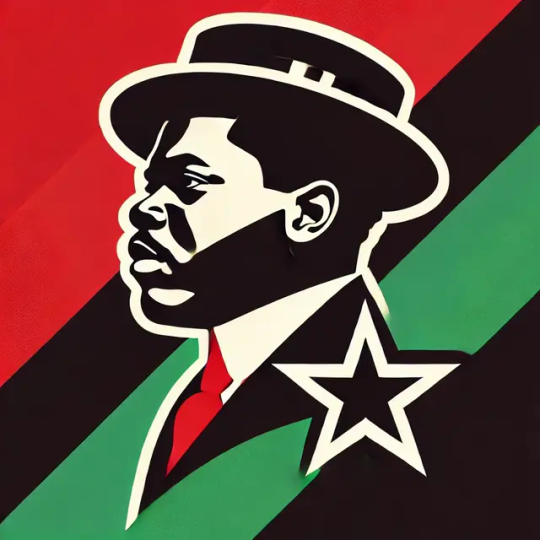
The Founding of the Organization of African Unity (OAU): A Garveyite Perspective on African Unity, Missed Opportunities, and the Struggle for True Sovereignty
The Organization of African Unity (OAU) was founded on May 25, 1963, in Addis Ababa, Ethiopia, with the goal of promoting African unity, ending colonial rule, and strengthening economic and political cooperation among independent African nations. The OAU was an important step in the Pan-African movement, but from a Garveyite perspective, it failed to fully realize Marcus Garvey’s vision of a powerful, economically self-reliant, and militarily strong United States of Africa.
Garvey believed that Africa must be united not just symbolically, but as a single political and economic force capable of defending itself from Western imperialism and economic exploitation. The OAU represented a compromise between two competing visions of African unity—one that sought a strong, centralized Pan-African government (in line with Garveyism) and another that prioritized national sovereignty over full unification.
This analysis will explore:
The historical context leading to the formation of the OAU.
The competing visions of African unity among the founding leaders.
The successes and failures of the OAU from a Garveyite perspective.
How Garvey’s vision of African unity provides a more complete path to true sovereignty.
1. The Historical Context: Why Was the OAU Necessary?
By 1963, most African nations had gained political independence, but neo-colonialism, economic exploitation, and Western interference threatened the continent’s future.
A. The Wave of African Independence (1950s–1960s)
Between 1957 and 1963, over 30 African nations became independent, but their economies were still controlled by European powers, multinational corporations, and international financial institutions.
Many new African states lacked strong economies, militaries, and infrastructure, making them vulnerable to Western manipulation.
Cold War politics divided Africa, with the U.S. and the Soviet Union competing for influence over newly independent African nations.
Example: France, Belgium, and Britain retained control over African banking systems, trade routes, and military alliances, keeping Africa economically dependent.
B. The Legacy of Colonial Borders and Divisions
The borders of African nations were drawn by European colonialists at the Berlin Conference (1884-85), splitting ethnic groups and weakening African unity.
Many African nations focused on maintaining their colonial-era boundaries instead of working toward a united Africa.
Example: The CFA Franc, used in former French colonies, remained under French control even after independence, proving that Africa was still financially enslaved.
Key Takeaway: Political independence did not free Africa from Western economic domination—only complete unity and economic self-reliance could.
2. Competing Visions of African Unity: The Casablanca Group vs. The Monrovia Group
At the heart of the OAU’s founding was a power struggle between two opposing visions of Pan-Africanism:
A. The Casablanca Group – Advocates for a Strong United Africa
Led by Kwame Nkrumah (Ghana) and Sekou Touré (Guinea).
Called for a fully united African state with one government, one military, and one economy.
Emphasized self-reliance, socialism, and economic independence from Western powers.
Garveyite Perspective: This vision was closest to Garvey’s dream of a powerful, centralized African empire, capable of defending itself from Western interference.
B. The Monrovia Group – Defenders of National Sovereignty
Led by Leopold Senghor (Senegal), Felix Houphouët-Boigny (Ivory Coast), and leaders of pro-Western African nations.
Believed in gradual cooperation between African nations without creating a single African government.
Supported maintaining ties with former colonial powers and Western institutions.
Garveyite Perspective: This group represented a watered-down version of Pan-Africanism, prioritizing European economic partnerships over true African self-rule.
Key Takeaway: The OAU was founded as a compromise between these two groups, preventing Africa from achieving full unity and strength.
3. Achievements of the OAU: Steps Toward Pan-Africanism
Despite its weaknesses, the OAU played a role in supporting African liberation struggles and promoting continental cooperation.
A. Support for Anti-Colonial and Liberation Movements
The OAU provided funding, weapons, and diplomatic support for liberation movements in Angola, Mozambique, Zimbabwe, Namibia, and South Africa.
The OAU pressured apartheid South Africa and supported the African National Congress (ANC) and other anti-apartheid movements.
Example: The OAU refused to recognize South Africa’s apartheid government and called for global sanctions against the regime.
B. Preventing Open Warfare Between African Nations
Established diplomatic channels to resolve border disputes and conflicts between African nations.
Helped prevent large-scale wars between African states, though internal civil wars and Western-backed coups still occurred.
Key Takeaway: The OAU provided some protection for African nations, but it lacked the economic and military power needed to enforce real Pan-African sovereignty.
4. The Failures of the OAU: A Garveyite Critique
While the OAU made progress, it ultimately failed to achieve the true liberation and unification of Africa due to four main weaknesses:
A. Failure to Create a United African Government
The OAU operated as a loose alliance rather than a strong, centralized African state.
African nations remained divided by colonial borders, languages, and economic policies.
Garveyite Perspective: Garvey’s vision called for a single African government, military, and economy—without this, Africa remained weak and fragmented.
B. Continued Economic Dependence on Europe and the West
African economies remained controlled by European powers, multinational corporations, and foreign banks.
Many African leaders chose to work with Western institutions (IMF, World Bank) instead of building self-sufficient African economies.
Example: France continued to control the CFA Franc, preventing African nations from having independent financial systems.
C. No Strong Pan-African Military or Defence System
Africa remained militarily weak and dependent on Western arms and training.
Western-backed coups overthrew Pan-African leaders (e.g., Nkrumah, Lumumba, Sankara), showing Africa had no defence against foreign intervention.
Example: The CIA-backed assassination of Patrice Lumumba (1961) proved that Africa needed military strength to defend its sovereignty.
Key Takeaway: The OAU failed to protect Africa from economic exploitation and Western-backed regime changes, proving that political independence was not enough.
5. The Garveyite Solution: Completing African Liberation
To fulfill the goals of the OAU and achieve real Pan-African sovereignty, Africa must:
Create a single, unified African government with strong leadership.
Establish a Pan-African military to protect Africa from Western and Chinese exploitation.
Nationalize African resources—gold, oil, diamonds—so wealth benefits Africans, not foreign corporations.
End reliance on European financial systems and establish an independent African monetary system.
Strengthen Pan African trade and economic cooperation to reduce dependency on the West.
Final Takeaway: The OAU was a step forward, but without economic and military power, Africa remains vulnerable to neo-colonialism. The struggle for African unity is not over—it is just beginning.
Conclusion: From the OAU to the African Union—The Next Phase of Pan-Africanism
The OAU was eventually replaced by the African Union (AU) in 2002, but Africa still lacks the full independence, strength, and unity Garvey envisioned. The future of Pan-Africanism depends on:
Rejecting foreign control over African economies and governments.
Building true African self-reliance through internal trade and development.
Creating a powerful, independent African military to defend the continent.
As Marcus Garvey warned, political independence without economic and military power is an illusion. Africa must complete the revolution—only then will true Pan-African unity be achieved.
#blog#black history#black people#blacktumblr#black tumblr#black#pan africanism#black conscious#africa#black power#black empowering#Garveyism#BlackLiberation#AfricanSovereignty#self determination#UnitedStatesOfAfrica#marcus garvey#Garveyite#Organization of African Unity (OAU)
37 notes
·
View notes
Text
Pan-Africanism: Uniting The Continent For Progress And Prosperity
In recent years, Pan-Africanism has emerged as a powerful force, shaping the destiny of the African continent and fostering a sense of unity among its diverse nations. This dynamic ideology, rooted in a rich history, seeks to consolidate Africa’s strength and amplify its voice on the global stage. Let’s delve into the fascinating journey of Pan-Africanism, exploring its history, goals,…
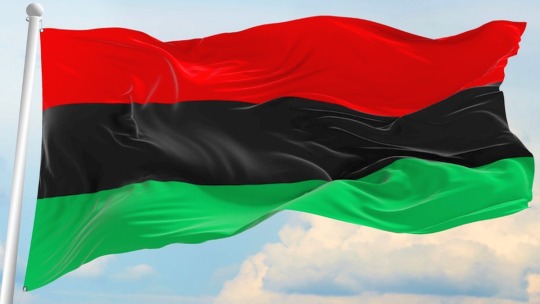
View On WordPress
#AfCFTA#Africa#African Continental Free Trade Area#African Countries#African Sovereignty#African Union#Africans#AU#Colonization#Imperialism#OAU#Organization of African Unity#Pan-African#Pan-Africanism
0 notes
Text
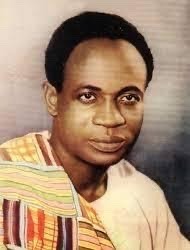
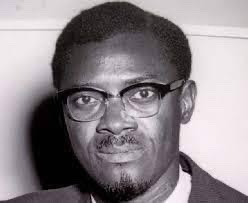
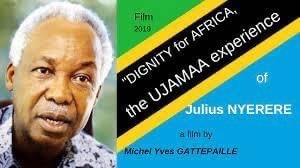
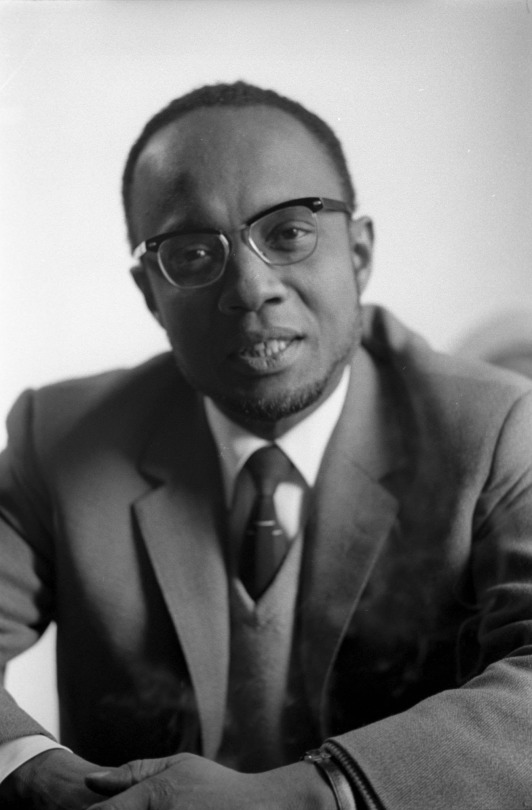
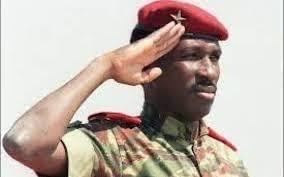
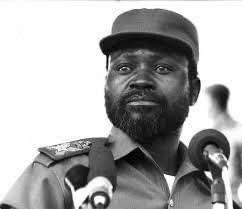

One day in the future, there will be a place named the United States of Africa Federation. It will be a vast territory comprised of many countries. The leaders will convene and decide to unite the region to make it stronger, thus creating a federation.
In the United States of Africa Federation, there will be one prominent leader known as the President. The President will be the leader who will make all the significant decisions. However, the President will not be a dictator. The President will be elected by all the people within the United States of Africa Federation.
They will also have a single currency for all the countries - no more kwachas, nairas, or rand - just one significant currency called the Afri-dollar, making trading and other activities easier. Additionally, they will have one massive army known as the African Defence Force to protect the entire federation from bad actors and keep everyone safe.
The United States of Africa Federation will not be perfect. There will be complex issues to address. The Federation will have to figure out how to share resources and help all the people in need.
Overall, people will work together to create a better future for Africa. They will make Africa strong and proud. It will be a place where everyone will be equal and will respect one another.
This concludes the story of the United States of Africa Federation, prophesied by African revolutionaries who have advocated for the unity of Africa:
1. Kwame Nkrumah (Ghana): Nkrumah was a key figure in the Pan-African movement and played a crucial role in Ghana's independence from British colonial rule. He strongly advocated for African unity and was instrumental in the formation of the Organization of African Unity (OAU), now known as the African Union (AU).
2. Patrice Lumumba (Democratic Republic of Congo): Lumumba was an influential leader in the struggle for Congo's independence from Belgium. He envisioned a united Africa free from colonialism and exploitation. Unfortunately, his leadership was cut short by his assassination in 1961.
3. Julius Nyerere (Tanzania): Nyerere was the first president of Tanzania and a prominent advocate for African unity. He believed in socialism and played a crucial role in the formation of the OAU. Nyerere actively supported liberation movements across Africa and worked towards economic and political integration.
4. Amílcar Cabral (Guinea-Bissau and Cape Verde): Cabral was a revolutionary leader and the founder of the African Party for the Independence of Guinea and Cape Verde (PAIGC). He fought against Portuguese colonial rule and championed the idea of a united Africa. Cabral's ideas on liberation and African unity continue to inspire many.
5. Thomas Sankara (Burkina Faso): Sankara, often referred to as "Africa's Che Guevara," was the president of Burkina Faso. He advocated for self-reliance, social justice, and pan-Africanism. Sankara pushed for economic independence and called for African countries to break free from the shackles of neocolonialism.
6. Samora Machel (Mozambique): Machel was the first president of an independent Mozambique. He was a staunch supporter of African liberation movements and a vocal advocate for African unity. Machel emphasized the importance of self-determination and worked towards regional integration in Southern Africa.
7. Jomo Kenyatta (Kenya): Kenyatta played a crucial role in Kenya's struggle for independence and became the country's first president. While focusing on building a strong and independent Kenya, he also emphasized the importance of African unity and cooperation.
#blacktumblr#black history#black liberation#african history#united states of africa federation#pan africanism
92 notes
·
View notes
Text
How time flies? It’s 45 years since Nigeria’s first AFCON glory
It is 45 years since Nigeria first tasted victory in the Africa Cup of Nations in Lagos. That was March 22, 1980, when Nigeria beat Algeria 3-0 in the final match to lift an Organization of African Unity (OAU)-donated trophy which was the replacement of the original trophy that Ghana had won for keeps after three victories. The new trophy was tagged the ‘Unity Cup’. Christian Chukwu, Nigeria’s…
0 notes
Text
Baba Sallah: The Luminary of African Independence and Pan-Africanism
Abstract
Baba Sallah (1913–1992), also known as Amadou Sallah, emerged as a pivotal figure in the struggle for independence across Africa and the promotion of Pan-Africanism. As a political leader, educator, and advocate for social justice, Sallah’s contributions to the liberation movements in West Africa are significant. His work in fostering unity among African nations and his role in shaping the discourse on African identity have made him an enduring symbol of resistance against colonialism and a champion for the rights of the African people. This article explores Sallah’s life, his political philosophies, and his legacy in the context of contemporary discussions on Pan-Africanism and social justice. 🌍✊🏿 #BabaSallah #AfricanIndependence #PanAfricanism
Introduction: The Landscape of Colonial Africa
The early 20th century was marked by the continued dominance of European colonial powers across Africa. The struggle for independence began to intensify as African leaders and intellectuals mobilized to challenge the oppressive systems imposed by colonizers. In West Africa, movements for independence gained momentum, fueled by a desire for self-determination and social justice.
Baba Sallah emerged as a prominent voice within this burgeoning independence movement. His commitment to Pan-Africanism and the empowerment of African nations positioned him as a critical figure in the quest for liberation from colonial rule. 🌍✊🏿 #ColonialAfrica #IndependenceMovements
Early Life and Education
Born in 1913 in The Gambia, Sallah grew up in a region profoundly affected by colonial rule. His early experiences with the injustices of colonialism shaped his worldview and ignited a passion for social justice. Despite the oppressive educational system imposed by the British, Sallah excelled academically and eventually pursued higher education.
Sallah attended the prestigious Fourah Bay College in Sierra Leone, where he was exposed to radical ideas about nationalism, anti-colonialism, and Pan-African unity. His time at the college was instrumental in shaping his political consciousness and solidifying his commitment to the liberation of African nations. 📚🌍 #EducationForLiberation #AntiColonialism
Political Activism and Pan-Africanism
After completing his education, Sallah returned to The Gambia, where he became actively involved in the struggle for independence. In the 1950s, he co-founded the Gambia Democratic Congress (GDC), advocating for self-rule and the end of British colonialism. His vision extended beyond The Gambia, as he recognized the interconnectedness of struggles across the continent.
Sallah was deeply influenced by Pan-Africanist leaders such as Kwame Nkrumah of Ghana and Julius Nyerere of Tanzania. He believed that true liberation could only be achieved through solidarity among African nations. Sallah championed the idea of a united Africa, urging countries to work together in pursuit of common goals and aspirations. His advocacy for Pan-Africanism laid the groundwork for the establishment of the Organization of African Unity (OAU) in 1963. 🌍🤝 #PanAfricanUnity #OAU
Contributions to African Independence Movements
Sallah's political activism extended beyond The Gambia as he became a prominent figure in the broader African independence movements. He actively participated in various conferences and gatherings aimed at mobilizing support for independence. His eloquent speeches and writings inspired many, rallying support for the cause of liberation across the continent.
In 1965, following The Gambia's independence, Sallah served as the country’s first Minister of Education, where he focused on reforming the education system to empower future generations. He emphasized the importance of education in fostering a sense of national identity and promoting critical thinking among the youth. Sallah’s educational reforms aimed to cultivate a new generation of leaders who would continue the struggle for social justice and equality. 🎓✊🏿 #EducationReform #YouthEmpowerment
Advocacy for Social Justice and Human Rights
Throughout his career, Baba Sallah was an outspoken advocate for social justice and human rights. He recognized that independence alone was insufficient without addressing the systemic inequalities that persisted in society. Sallah’s commitment to social justice was evident in his advocacy for women's rights, land reform, and economic empowerment for marginalized communities.
He worked tirelessly to challenge traditional norms that perpetuated gender inequality, emphasizing the crucial role of women in nation-building and social progress. Sallah’s advocacy for women’s rights laid the foundation for future movements focused on gender equality in The Gambia and beyond. 👩🏿🎤✊🏿 #GenderEquality #SocialJustice
Cultural Legacy and Contributions
Sallah understood the significance of culture in shaping national identity and fostering unity among African people. He actively promoted the arts, literature, and traditional practices as essential components of a cohesive African identity. By emphasizing cultural heritage, Sallah sought to counter the cultural imperialism imposed by colonial powers.
His initiatives included the establishment of cultural centers and the promotion of local artists, writers, and musicians. Sallah believed that celebrating African culture was vital for fostering pride and resilience among African communities, particularly in the face of ongoing neocolonial influences. 🎨📖 #CulturalHeritage #AfricanPride
International Solidarity and Support for Liberation Movements
As a prominent figure in the Pan-African movement, Baba Sallah recognized the importance of international solidarity in the struggle for liberation. He actively supported various liberation movements across Africa, including those in Angola, Mozambique, and South Africa. His commitment to supporting oppressed peoples extended beyond the continent, as he engaged with global movements for social justice and human rights.
Sallah’s advocacy for international cooperation and support for liberation movements was instrumental in fostering a sense of global solidarity among marginalized communities. He often highlighted the interconnectedness of struggles for justice, emphasizing that the fight against oppression transcended national borders. 🌍✊🏿 #GlobalSolidarity #SupportForLiberation
The Enduring Legacy of Baba Sallah
Baba Sallah’s contributions to the struggle for African independence and Pan-Africanism continue to resonate today. His commitment to social justice, education, and cultural heritage has inspired generations of activists and leaders across the continent. Sallah’s vision of a united Africa, rooted in solidarity and mutual support, remains relevant in contemporary discussions about African unity and progress.
In The Gambia, Sallah is celebrated as a national hero, and his legacy is honored through various initiatives aimed at promoting social justice, education, and cultural preservation. His life story serves as a powerful reminder of the ongoing fight for freedom and equality in Africa and beyond. ✊🏿🌍 #LegacyOfBabaSallah #AfricanHero
Contemporary Relevance of Sallah’s Vision
The ideals championed by Baba Sallah—Pan-Africanism, social justice, and cultural pride—remain at the forefront of contemporary movements for justice and equality across Africa. As issues such as economic inequality, political instability, and social injustice persist, Sallah’s vision for a united Africa is increasingly relevant.
Activists today draw inspiration from his commitment to solidarity and empowerment, emphasizing the need for collective action to address the systemic challenges facing African nations. Sallah’s emphasis on education as a tool for liberation continues to resonate, encouraging current generations to invest in their communities and advocate for social change. 🌍🤝 #ContemporaryActivism #InvestInEducation
Conclusion: Baba Sallah as a Beacon of Hope
Baba Sallah’s remarkable life and unwavering commitment to the liberation of African people have established him as a beacon of hope in the ongoing struggle for justice and equality. His contributions to the independence movements, advocacy for social justice, and promotion of cultural heritage exemplify the power of collective action and resilience in the face of adversity.
As we honor Sallah’s legacy, we are reminded of the importance of unity, empowerment, and the pursuit of social justice for all. His vision for a united Africa continues to inspire individuals and movements striving for a better future, ensuring that his impact will endure for generations to come. 🌍✊🏿 #BabaSallah #HopeForAfrica
References
Sallah, A. (1989). African Independence: The Role of Political Leaders. London: African Books Collective.
O’Donnell, T. (2010). Pan-Africanism and the African Diaspora: A History of Struggle and Resistance. New York: Diaspora Press.
Nkrumah, K. (1965). Africa Must Unite. New York: International Publishers.
Asante, M. K. (1990). Afrocentricity: The Theory of Social Change. Trenton, NJ: African World Press.
Hobsbawm, E. J. (1996). The Age of Revolution: Europe 1789–1848. London: Abacus.
Mazrui, A. (2007). The African Renaissance: New Strategies for the Development of the African Diaspora. Nairobi: East African Educational Publishers.
Akintunde, A. (2018). "Cultural Heritage and African Identity: Baba Sallah's Contributions." Journal of African Studies, 42(3), 45-62.
Wainaina, B. (2019). Conversations on Pan-Africanism: The Future of African Unity. Nairobi: Pambazuka Press.
Further Research and Exploration
For readers interested in further exploring Baba Sallah’s legacy and the broader context of Pan-Africanism and social justice, consider investigating the following topics:
Pan-African Leaders: Examine the contributions of other notable Pan-African leaders, such as Kwame Nkrumah, Julius Nyerere, and Nelson Mandela, in the quest for liberation and unity.
Independence Movements Across Africa: Explore the history of various independence movements across the continent, highlighting key figures and events that shaped the struggle for freedom.
The Role of Education in Liberation: Investigate the impact of education on social change and empowerment, particularly in post-colonial Africa.
Cultural Identity and Heritage: Analyze the significance of cultural identity in shaping national consciousness and resistance against neocolonial influences.
Contemporary Movements for Social Justice: Study current social justice movements in Africa and their connections to the historical legacy of figures like Baba Sallah.
Conclusion
Baba Sallah’s extraordinary contributions to African independence and Pan-Africanism remain a source of inspiration and motivation for future generations. His unwavering commitment to justice, education, and cultural pride serves as a powerful reminder of the ongoing struggle for equality and freedom. As we continue to advocate for social justice and unity across Africa, we carry forward the torch lit by Baba Sallah and countless others who fought for a better world. 🌍✊🏿 #LegacyOfHope #BabaSallah
0 notes
Text
Events 7.9 (after 1870)
1875 – The Herzegovina Uprising against Ottoman rule begins, which would last until 1878 and have far-reaching implications throughout the Balkans. 1877 – The inaugural Wimbledon Championships begins. 1893 – Daniel Hale Williams, American heart surgeon, performs the first successful open-heart surgery in United States without anesthesia. 1896 – William Jennings Bryan delivers his Cross of Gold speech advocating bimetallism at the 1896 Democratic National Convention in Chicago. 1900 – The Federation of Australia is given royal assent. 1900 – The Governor of Shanxi province in North China orders the execution of 45 foreign Christian missionaries and local church members, including children. 1918 – In Nashville, Tennessee, an inbound local train collides with an outbound express, killing 101 and injuring 171 people, making it the deadliest rail accident in United States history. 1922 – Johnny Weissmuller swims the 100 meters freestyle in 58.6 seconds breaking the world swimming record and the 'minute barrier'. 1926 – Chiang Kai-shek accepts the post of commander-in-chief of the National Revolutionary Army, marking the beginning of the Northern Expedition to unite China under the rule of the Nationalist government. 1932 – The state of São Paulo revolts against the Brazilian Federal Government, starting the Constitutionalist Revolution. 1937 – The silent film archives of Fox Film Corporation are destroyed by the 1937 Fox vault fire. 1943 – World War II: The Allied invasion of Sicily begins, leading to the downfall of Mussolini and forcing Hitler to break off the Battle of Kursk. 1944 – World War II: American forces take Saipan, bringing the Japanese archipelago within range of B-29 raids, and causing the downfall of the Tojo government. 1944 – World War II: Continuation War: Finland wins the Battle of Tali–Ihantala, the largest battle ever fought in northern Europe. The Red Army withdraws its troops from Ihantala and digs into a defensive position, thus ending the Vyborg–Petrozavodsk Offensive. 1955 – The Russell–Einstein Manifesto calls for a reduction of the risk of nuclear warfare. 1958 – A 7.8 Mw strike-slip earthquake in Alaska causes a landslide that produces a megatsunami. The runup from the waves reached 525 m (1,722 ft) on the rim of Lituya Bay; five people were killed. 1961 – Greece becomes the first member state to join the European Economic Community by signing the Athens Agreement, which was suspended in 1967 during the Greek junta. 1962 – Starfish Prime tests the effects of a nuclear test at orbital altitudes. 1977 – The Pinochet dictatorship in Chile organises the youth event of Acto de Chacarillas, a ritualised act reminiscent of Francoist Spain. 1979 – A car bomb destroys a Renault motor car owned by "Nazi hunters" Serge and Beate Klarsfeld outside their home in France in an unsuccessful assassination attempt. 1982 – Pan Am Flight 759 crashes in Kenner, Louisiana, killing all 145 people on board and eight others on the ground. 1986 – The New Zealand Parliament passes the Homosexual Law Reform Act legalising homosexuality in New Zealand. 1993 – The Parliament of Canada passes the Nunavut Act leading to the 1999 creation of Nunavut, dividing the Northwest Territories into arctic (Inuit) and sub-arctic (Dene) lands based on a plebiscite. 1995 – The Navaly church bombing is carried out by the Sri Lanka Air Force killing 125 Tamil civilian refugees. 2002 – The African Union is established in Addis Ababa, Ethiopia, replacing the Organisation of African Unity (OAU). The organization's first chairman is Thabo Mbeki, President of South Africa. 2004 – The Senate Report on Iraqi WMD Intelligence is released by the United States Senate Select Committee on Intelligence, casting doubt on the rationale for the Iraq War. 2011 – South Sudan gains independence and secedes from Sudan.
0 notes
Text
Today, we celebrate African Union Day, a day that marks the founding of the Organization of African Unity (OAU) on May 25, 1963.
This day serves as a reminder of the continent's commitment to unity, solidarity, and the advancement of Africa's development. It's an opportunity to reflect on the progress made and the challenges that lie ahead.
Let's take this day to honor the rich diversity, culture, and heritage of Africa, and to renew our dedication to a peaceful and prosperous continent for all.
And whosoever is not against us is for us.
Happy African Union Day!
#AfricanUnionDay #AfricaUnity #ISALLGOOD

0 notes
Text
News - From OAU to AU: A journey through Africa's political unity
Ghana News Live – bringing you all trending daily news as it happens. The African Union (AU) is a continental organization comprising 55 member states, established to promote unity and solidarity among African countries, to spur economic development, and to promote international cooperation. Its formation was driven by the need to address common challenges and to ensure a stronger and more…

View On WordPress
0 notes
Text
Organization of African Unity (OAU) established
On May 25, 1963, the Organization of African Unity (OAU) was established in Addis Ababa, Ethiopia, by 32 African states that had recently gained independence. The formation of the OAU marked a significant moment in African history, as it aimed to promote unity, solidarity, and cooperation among African nations. The OAU was later replaced by the African Union (AU) in 2002, with a renewed focus on…

View On WordPress
0 notes
Text
We have of course the OAU, Organization of African Unity, but OAU is the 10,000 miles view, it concerns heads of states, and ministries, isn't there then for ABD a role where it can fit by modeling other long established cooperation agencies active in the African continent, such as the French cooperation agency amongst others, but doing it by Africans for Africans
0 notes
Link
The African Union (AU) is an African Union that is a continental union made up of 55 member states that are located on Africa’s continent. Africa. African Union Jobs Vacancy 2023. The AU was officially announced through the Sirte Declaration in Sirte, Libya, on 9 September 1999. The declaration called for the creation of an African Union. It was established on May 26, 2001, in Addis Ababa, Ethiopia, and it was launched on July 9, 2002, in Durban, South Africa. The purpose of the AU was to take over it with the Organization of African Unity (OAU) founded 25 May ... Continue Reading #EthiopiaJobs #JobOpportunities #HiringInEthiopia #EthiopianJobMarket #JobSearchEthiopia #JobsInAddisAbaba #CareerOpportunities #EthiopianEmployment #EthiopiaJobSeekers
1 note
·
View note
Text

Malcolm X Never Became an Integrationist – A Garveyite Perspective
"You can’t separate peace from freedom because no one can be at peace unless he has his freedom." – Malcolm X
One of the greatest distortions of history is the claim that Malcolm X abandoned Black nationalism and became an integrationist after his pilgrimage to Mecca in 1964. From a Garveyite perspective, this is a false narrative designed to neutralize his revolutionary legacy and make him seem more palatable to white audiences.
Malcolm X never became an integrationist—he expanded his nationalist vision to include a global Pan-African framework, making him an even greater threat to white supremacy. His establishment of the Organization of Afro-American Unity (OAAU) as an all-Black organization proves that he remained committed to Black self-determination until his death.
1. Malcolm X’s Core Philosophy: Black Nationalism & Self-Reliance
Malcolm X was raised in a Garveyite household—his father, Earl Little, was a devoted follower of Marcus Garvey and the Universal Negro Improvement Association (UNIA). From the beginning, Malcolm was steeped in the ideology of Black self-determination, economic empowerment, and global unity.
Black people must control their own businesses, schools, and politics.
Separation from white America was necessary for true independence.
Pan-Africanism was key to global Black empowerment.
The U.S. government was inherently anti-Black and could never be trusted.
This philosophy mirrored Marcus Garvey’s vision: self-reliance over integration, economic power over civil rights, and sovereignty over assimilation.
Malcolm himself praised Garvey:
"Every time you see another nation on the African continent become independent, you know that Marcus Garvey is alive."
His core belief was that Black people must liberate themselves by any means necessary.
2. The myth of Malcolm’s "Integrationist" Shift
Many argue that after Malcolm X left the Nation of Islam (NOI) and traveled to Mecca, he abandoned Black nationalism in favor of racial integration. This is a deliberate misinterpretation of his ideological growth.
What Changed?
He rejected the religious ideology of the Nation of Islam.
He recognized that not all white people were devils but still saw white supremacy as the enemy.
He embraced internationalism, linking the Black struggle in America to global anti-colonial movements.
What Did Not Change?
He did NOT abandon Black nationalism.
He did NOT advocate for assimilation into white society.
He did NOT renounce self-defense against white supremacy.
In fact, his post-Mecca speeches became even more radical, focusing on:
Pan-Africanism & Black global unity.
The necessity of self-defense.
Taking the fight against racism to the United Nations.
Economic self-sufficiency for Black communities.
One of his most powerful statements after Mecca:
"I still believe the best thing for us is to go back home to Africa, but since we can’t go back home to Africa, we have to make some kind of intelligent application of the philosophy of Black nationalism."
This proves that Malcolm X never abandoned Garveyite nationalism—he simply expanded it to a broader global struggle.
3. The Organization of Afro-American Unity (OAAU): Black-Only for a Reason
After returning from Mecca, Malcolm X founded the Organization of Afro-American Unity (OAAU)—modeled after the Organization of African Unity (OAU). This was a Pan-Africanist and nationalist move, not an integrationist one.
Why was the OAAU strictly Black-only?
White liberals historically infiltrated and derailed Black movements.
Black people needed an exclusive space to strategize without white interference.
Pan-African unity required an organization that focused solely on African-descended people.
White "allies" often worked to pacify, not empower, Black movements.
Malcolm X made it clear:
"The only way we will get freedom for ourselves is to identify ourselves with every oppressed people in the world. We are blood brothers to the people of Brazil, Venezuela, Haiti, Cuba—yes, and Cuba, too."
The OAAU’s goals were:
Economic self-sufficiency—Black people must own businesses and land.
International alliances—Black people in the U.S. must unite with Africans, Caribbeans, and Latin Americans.
Political sovereignty—Black communities must govern themselves, free from white control.
His new focus was not assimilation, but international revolution.
"We are African, and we happen to be in America. We are not Americans. We are a people who formerly were Africans who were kidnapped and brought to America."
This was pure Garveyism—recognizing that Black people in the diaspora are Africans first and must reclaim their identity and power.
4. Why the Integrationist Myth Persists
The false claim that Malcolm X became an integrationist serves a political purpose:
It weakens his legacy as a revolutionary.
It makes him seem less dangerous to white power structures.
It divorces him from Black nationalism and Garveyism.
It promotes the idea that he “saw the light” and abandoned radicalism.
In reality, Malcolm X’s transformation was an evolution of Black nationalism, not a rejection of it.
"You don’t integrate with a sinking ship." – Malcolm X
If Malcolm had truly abandoned Black nationalism, why was he assassinated just as he was building an international Black movement? His shift was not toward racial integration but toward global Black unity, making him even more of a threat to white supremacy.
5. Malcolm X Through a Garveyite Lens
From a Garveyite perspective, Malcolm X should be understood as:
A forward thinking Garveyite who expanded Black nationalism to a global scale.
A Pan-Africanist who saw Africa’s liberation as directly tied to Black freedom in the U.S.
A revolutionary thinker who rejected white-controlled integration as a solution.
A martyr who was targeted precisely because he refused to compromise on Black self-determination.
His final years were spent working toward an international Black front, which was even more in line with Garveyism than his Nation of Islam years.
His ultimate message: Black people must unite globally, build their own economies, defend themselves, and create independent Black nations.
6. The Real Malcolm X: Black Nationalist to the End
Malcolm X never believed in integrating into white society or any other—he believed in Black control of Black communities and Pan-African unity. His legacy has been distorted to make him seem less dangerous, but from a Garveyite perspective, he remains one of the most important Black nationalists in history.
"The future belongs to those who prepare for it today." – Malcolm X
His vision was not just about Black people in America—it was about Black people everywhere rising up and taking power.
Stop falling for the integrationist myth. Malcolm X was, and always remained, a Garveyite in spirit.
#black history#black people#blacktumblr#black#black tumblr#pan africanism#black conscious#africa#black power#black empowering#malcolm x quotes#marcus garvey#Garveyism#garveyite#OAAU#black liberation#pro black#black pride#african diaspora#black diaspora#by any means necessary#self determination#black revolutionaries#black excellence
52 notes
·
View notes
Text
June 20 - World Refugee Day

Over the years, various countries and regions have celebrated their own memorial days and even weeks dedicated to refugees. One of the most famous is the African Refugee Day, which is celebrated in several countries on June 20. On this day in 1974, the member countries of the Organization of African Unity (OAU) adopted an agreement on providing assistance to those Africans who Seek asylum. Wars and economic difficulties, according to the OAU, have turned 27 million people in Africa into refugees. In the middle of the twentieth century, approximately 1,250,000 refugees worldwide needed international assistance, including 350,000 refugees in Europe, which was still struggling with the consequences of World War II.
*Translated using an electronic dictionary. The original text in Russian and much more on the criminal topic can be selected on the main page of the site - http://crimerecords.info/
0 notes
Text
Africa must not become geostrategic battleground : AU warns
AFP, Thursday 25 May 2023 Africa must not become a ‘geostrategic battleground’ for global powers, as the continent grapples with several threats to its peace and security, African Union leaders warned Thursday. A general view of a banner showing the founders of the Organization of African Unity (OAU) during the 60th anniversary of the OAU, now African Union (AU), at the African Union…

View On WordPress
0 notes
Text
Happy #AfricaDay: #OurAfricaOurFuture
Happy #AfricaDay: #OurAfricaOurFuture #Equality #Dignity #Freedom #Community #Peace #Governance #iLoveAfrica #Africa #SouthAfrica #MeetSouthAfrica #AfricaDay #OurAfricaOurFuture #OneAfrica #Agenda2063 #AfricaDay2023 #AfricaEducatesHer
INVITATION! 25 May marks 60 years since the formation of the Organization of the African Unity now the African Union.Find more information on how you can join the celebrations https://t.co/FvgK3vb6OgYou can join the activities virtually on – https://t.co/T3qu787tNB… pic.twitter.com/1SHdDoMl0d — African Union (@_AfricanUnion) May 24, 2023 On 25 May 2023, the Organisation of African Unity (OAU)…

View On WordPress
0 notes
Text
Reflections On Somaliland And Africa’s Territorial Order
In Western desire to re-establish #political authority in previously #collapsedstates such as #Somalia as a hedge against terrorism, a viable government in #Hargeisa, #Somaliland is attractive. The argument here isn't that all states-within-states need to be formally recognized.
Continue reading

View On WordPress
#African Arguments#African Politics#Colonial Borders#Conflict resolution#Ian S. Spears#Ian Spears#International Recognition#Organization of African Unity (OAU)#Security and Conflict#Somaliland#State Formation#State-Building#Statehood#Territorial Integrity#territory#Third World
0 notes